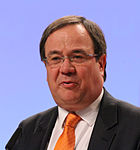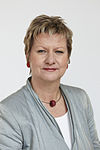North Rhine-Westphalia state election, 2017
|
|
||||||||||||||||||||||||||||||||||||||||||||||||||||||||||||||||||||||||||||||||||||||||||||||||||||||||||||
|---|---|---|---|---|---|---|---|---|---|---|---|---|---|---|---|---|---|---|---|---|---|---|---|---|---|---|---|---|---|---|---|---|---|---|---|---|---|---|---|---|---|---|---|---|---|---|---|---|---|---|---|---|---|---|---|---|---|---|---|---|---|---|---|---|---|---|---|---|---|---|---|---|---|---|---|---|---|---|---|---|---|---|---|---|---|---|---|---|---|---|---|---|---|---|---|---|---|---|---|---|---|---|---|---|---|---|---|---|
|
||||||||||||||||||||||||||||||||||||||||||||||||||||||||||||||||||||||||||||||||||||||||||||||||||||||||||||
|
All 199 seats of the Landtag of North Rhine-Westphalia 100 seats needed for a majority |
||||||||||||||||||||||||||||||||||||||||||||||||||||||||||||||||||||||||||||||||||||||||||||||||||||||||||||
|
||||||||||||||||||||||||||||||||||||||||||||||||||||||||||||||||||||||||||||||||||||||||||||||||||||||||||||

|
||||||||||||||||||||||||||||||||||||||||||||||||||||||||||||||||||||||||||||||||||||||||||||||||||||||||||||
|
||||||||||||||||||||||||||||||||||||||||||||||||||||||||||||||||||||||||||||||||||||||||||||||||||||||||||||
An election was held on 14 May 2017 to elect members to the Landtag (state legislature) of the German state of North Rhine-Westphalia.
The incumbent government at time of the election was the SPD–Green administration of Minister-President Hannelore Kraft. The main opposition consisted of the CDU, led by Armin Laschet since 2014, and the FDP led by Christian Lindner. Following the election, the CDU and FDP formed a coalition government with Armin Laschet becoming the new Minister-President. The SPD went into the opposition.
CDU became the largest party, whereas the ruling SPD and Greens lost votes. The Pirates were ousted from the Landtag, whereas the AfD gained parliamentary representation. FDP got their best result in history. Die Linke narrowly failed to get parliamentary representation. Voter turnout was higher than in the previous election.
...
Wikipedia







